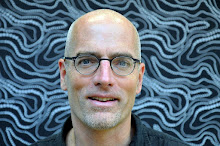Since then I've seen this formulation crop up in a number of different places -- sometimes in the form of an assertion by those who accept the scientific consensus: "I believe in global warming." Perhaps soon we'll have to say things like "I believe in the laws of gravity" (or not). In the face of the collapse of science, the goal is to couch everything in terms of a war of faiths. Or, more simply, war, which is what that boils down to. It should come as no surprise in this context that the response of right-wingers to passage of health car reform has been threats and attacks. Falling back behind the Enlightenment means returning to resources other than recourse to deliberation, evidence giving, and reason as means of settling debates.
Wednesday, March 24, 2010
MemeWatch: Do you "believe" in global warming?
In Jon Stewart's recent appearance on "The O'Reilly Factor," the host, Bill O'Reilly framed a question about global warming in what seems to becoming the preferred fashion on the right: "Do you believe in global warming?" This puts global warming on par with the Easter Bunny and Phlogiston. When did global warming become an issue of faith? Round about the same time that the Texas Board of Education removed any reference to "Enlightenment ideas" from the school curriculum. Coincidence? Perhaps not. The real question is, "do you believe in the scientific method and the process whereby it adduces empirical evidence and tests hypotheses?" Or, more simply, "don't you think that science is just another kind of faith -- perhaps a secular religion?"
MemeWatch: "The science isn't settled"

On Bill Maher the other night, conservative talk radio host Amy Holmes trotted out the familiar right-wing talking point on global warming: "the science isn't settled." This then leads to a familiar, well-worn argument over various minutiae of the debate (what about the errors regarding the claim that Himalayan glaciers are melting? etc.). It would be nice to see someone like Maher respond by asking what it would mean for the science to be "settled." Would this mean that everyone who claims some kind of scientific credential would have to agree. If that were the case, the science still wouldn't be settled on whether the earth is round or flat. It would be a slightly less inane media world if every time someone tried this line they were forced to outline some kind of meaningful definition of what "settled" science is. I suppose the resulting danger would be some kind of vernacular postmodernism in which Republicans claimed that all scientific consensus is merely an arbitrary closure, an attempt to pin down the endless sliding of signifiers. Soon Frank Luntz will be talking like that -- when he isn't criticizing the lefty academy for preaching some combination of cultural relativism and Marxism.
Subscribe to:
Posts (Atom)
